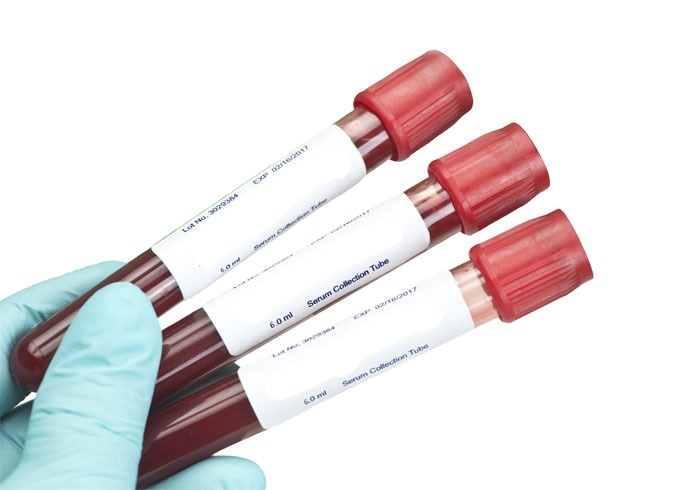
Herpes Testing
Is that sore or rash actually genital herpes? Can you tell by just looking? Can a healthcare provider? No! When it comes to diagnosing genital herpes, it takes more than a look.

A paper published in Sexually Transmitted Diseases finds that commercial blood tests commonly used to diagnose herpes simplex virus (HSV) are frequently not reliable, especially in those with “low positive” results.
Herpes detection in people without symptoms typically involves a blood test to find HSV-specific antibodies that the immune system produces in response to the virus. Results with these tests (known as enzyme-linked immunoassays or EIA) are reported as an index value where the antibody levels are measured. An index value above 1.1 is considered positive, but some experts regard values less than 3.5 as “low positive” and recommend a confirmatory test such as the HSV Western Blot, long considered the gold standard with regards to accuracy and consistency of results.
Researchers from the University of Washington in Seattle and the Westover Heights Clinic in Portland, OR found that patients with low positive HSV-2 results on commercial EIAs frequently tested negative with the more sensitive Western Blot. With HSV-1, the reverse was true: commercial tests often overlooked HSV-1 antibodies later found with the Western Blot. In a press release issued by the University of Washington Health Sciences, study lead author Anna Wald, MD, said “These findings indicate that if you didn’t have signs and symptoms of genital herpes and were diagnosed by an (immunoassay antibody) test alone and had a low positive index value, there’s a 50-50 chance the test was wrong…In that case, you should get a confirmatory test.”
Read more about HSV diagnostics from the University of Washington Virology Research Clinic. Also browse resources offered through ASHA’s Herpes Resource Center.

Is that sore or rash actually genital herpes? Can you tell by just looking? Can a healthcare provider? No! When it comes to diagnosing genital herpes, it takes more than a look.

If you are pregnant and you have genital herpes, you may be concerned about the risk of spreading the infection to your baby. Be reassured that the risk is extremely small.

The best way for couples to deal with herpes is to talk about it openly and make decisions together. So what’s the best way to start the conversation?

While there is no cure for herpes simplex virus (HSV) infections, there are various treatment options available that can help manage symptoms and control outbreaks.

Most people with herpes won’t experience symptoms, but knowing what to look for can make you more aware.

About 50 percent of the adult population in the United States has oral herpes. Most people contract oral herpes when they are children by receiving a kiss from a friend or relative.
ASHA believes that all people have the right to the information and services that will help them to have optimum sexual health. We envision a time when stigma is no longer associated with sexual health and our nation is united in its belief that sexuality is a normal, healthy, and positive aspect of human life.
ABOUT
GET INVOLVED
ASHA WEBSITES
GET HELP
© 2025 American Sexual Health Association